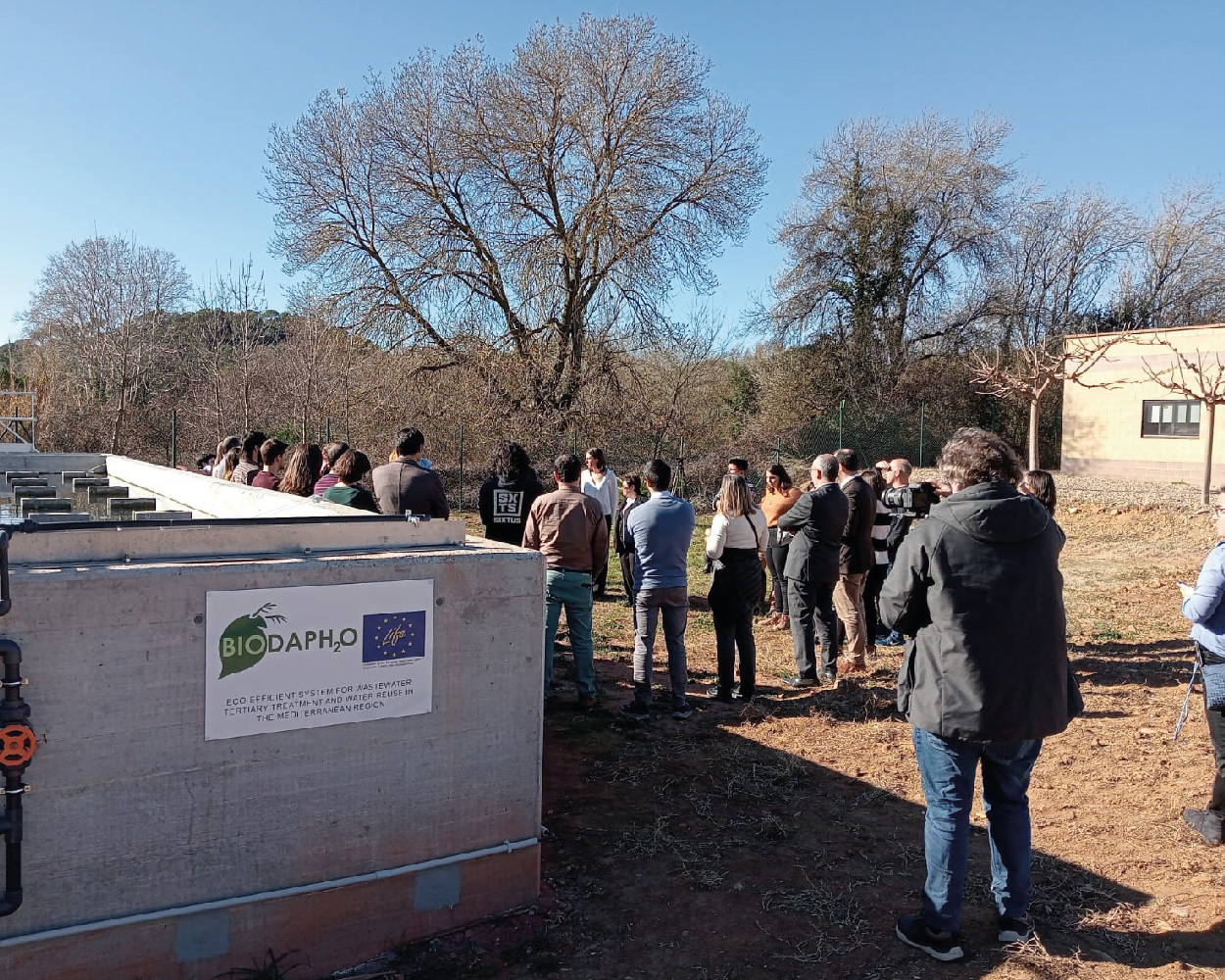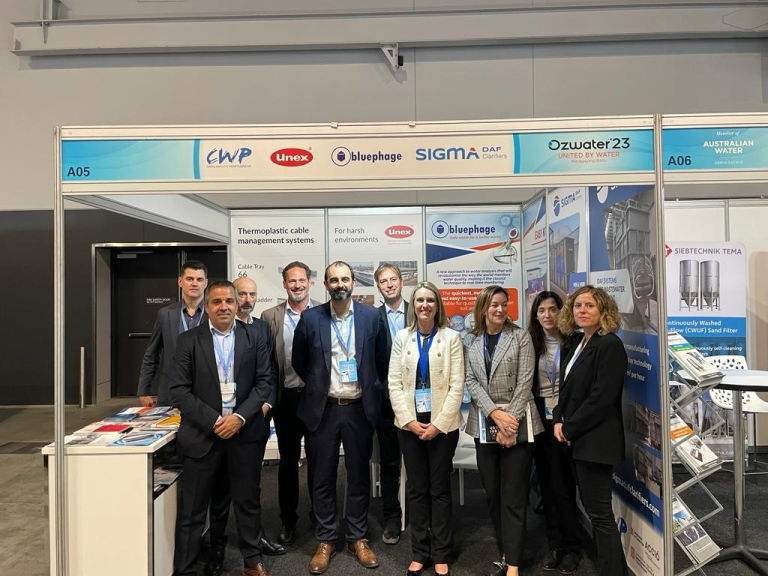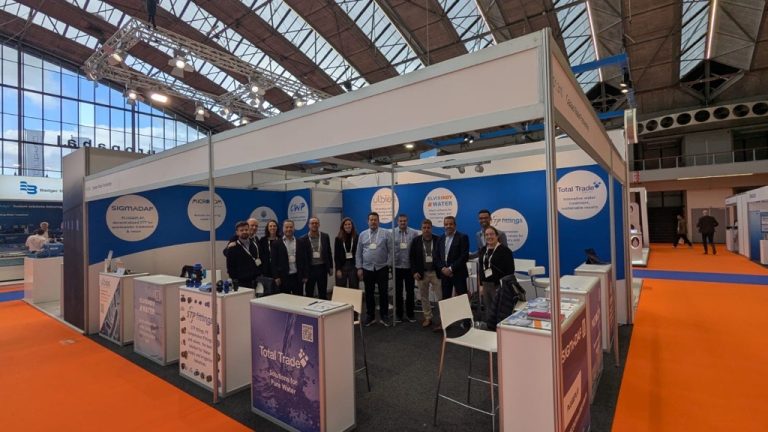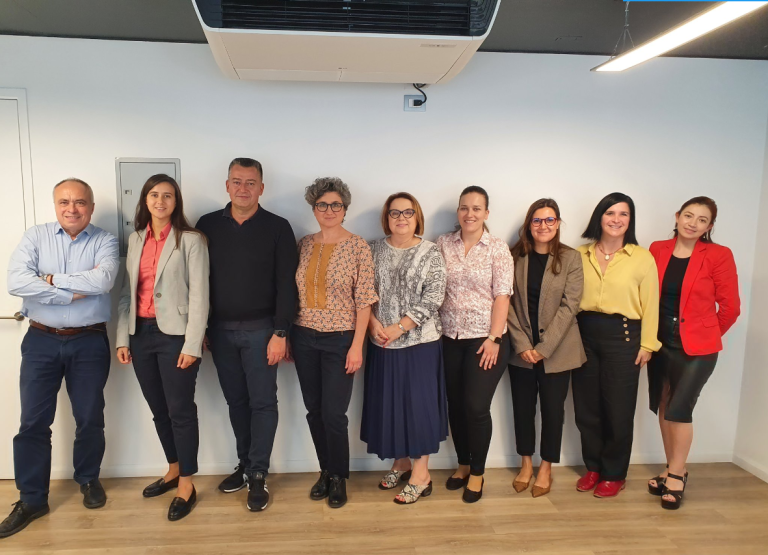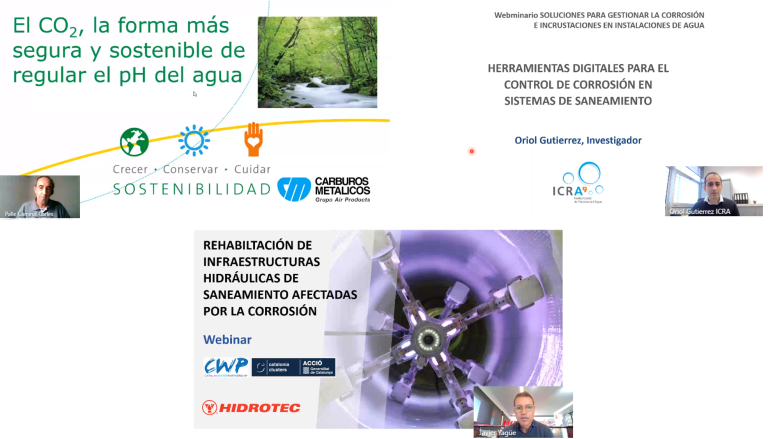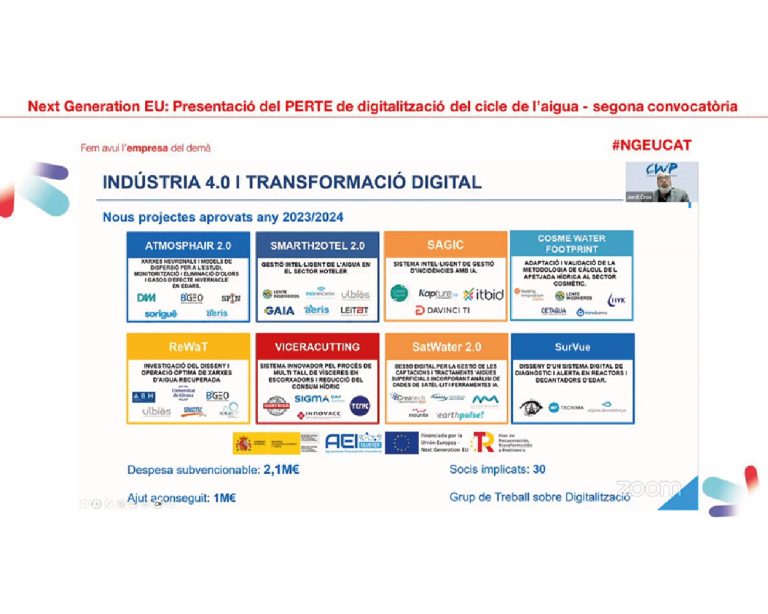The LIFE BIODAPH2O project inaugurates the BIODAPH tertiary treatment system installed at the wastewater treatment plant (EDAR) in the municipality of Quart (Girona, Catalonia), which will treat up to 40% of its effluent
- More than 40 water sector professionals learned about the details of the BIODAPH technology: an eco-efficient, nature-based system for the tertiary treatment and reuse of wastewater.
- The LIFE BIODAPH2O project (LIFE21-ENV-ES-BIODAPH2O) is co-financed by the European Commission under the LIFE program, has a duration of 42 months, ending in January 2026, and has a budget of €2.1 million.
- The project participants include the University of Girona (coordinators), Sorigué, IDAEA-CSIC, BETA Technology Center – University of Vic, Catalan Water Partnership, National Technical University of Athens (NTUA), and MINAVRA Techniki.
Last Thursday, January 18th, the Catalan Water Partnership (CWP), together with the University of Girona, coordinators of the LIFE BIODAPH2O project, organized the inauguration event for the BIODAPH demonstration plant at the Quart Wastewater Treatment Plant (EDAR) in Girona, Catalonia. The BIODAPH technology is based on the purifying capabilities of water fleas (Daphnia), microalgae, and microbial biofilms to remove contaminants, including nutrients, organic carbon, suspended solids, pathogens, heavy metals, emerging and priority contaminants, and microplastics. This compact, low-energy consumption system does not produce sludge or require chemicals for its operation.
The inauguration event of the Quart BIODAPH pilot plant began with a technical session, where Emilia Belén García, head of the Technology and Operations Department at the Catalan Water Agency (ACA), welcomed the attendees and highlighted the importance of implementing such real-scale projects to improve the quality of effluents from wastewater treatment plants. Following this, the project coordinator, Victòria Salvadó from the University of Girona, presented the details of the LIFE BIODAPH2O project.
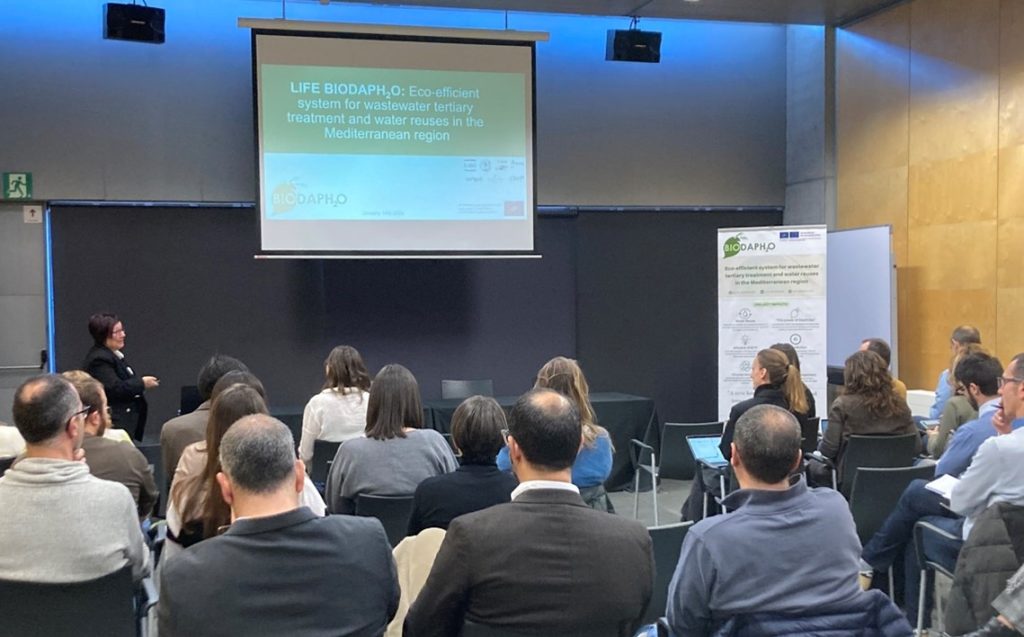
Figure 1. Presentation of the LIFE BIODAPH2O project by the project coordinator, Victòria Salvadó.
In addition to the Quart pilot, the project includes another testing site located in a different water-stressed region of the Mediterranean, in Greece, near the Antissa wastewater treatment plant (EDAR) on the island of Lesbos. At the Quart EDAR, the BIODAPH system will help reduce the impact of secondary wastewater discharges into the Onyar River while improving the chemical and ecological quality of the river’s aquatic ecosystems. Meanwhile, in Antissa, different configurations of the system will be tested to produce regenerated water in compliance with EU Regulation 2020/741 for irrigating a nearby agricultural plot.
After a coffee break, the event continued with the presentation of other innovative projects (LIFE ReNaturWAT, UPWATER, MULTISOURCE, and GiroNat) that not only feature nature-based solutions but also provide tools to assist in the decision-making process for selecting appropriate nature-based solutions (NbS). These projects contribute to improving quality of life for society, enhancing ecosystems, and increasing resilience to climate change.
Following the presentations, a roundtable discussion was held to debate the transition from research to implementation in the field of nature-based solutions. The discussion was joined by two technology transfer experts from leading universities: Marc Sabater i Armengou from the University of Girona and Irina Moreno Martí from the AgrotechUPC Research Center in the agri-food sector. They were joined by Gianluigi Buttiglieri, an expert researcher from the Catalan Institute for Water Research (ICRA), and Begoña Martínez López from the Besòs Tordera Consortium, which currently manages 27 sanitation systems. The panel was moderated by Aina Amengual Oliver, R&D Project Manager at the Catalan Water Partnership (CWP).

Figure 2. Discussion on the transition from research to implementation in nature-based solutions at the roundtable of the LIFE BIODAPH2O project seminar.
The seminar concluded with an inspiring visit to the Quart Municipal Wastewater Treatment Plant (EDAR), where representatives from the University of Girona and Sorigué, responsible for constructing the pilot in Girona, provided a detailed explanation of how the BIODAPH technology operates. Finally, Xavier Amores Bravo, director of the Catalan Water Partnership, delivered a closing presentation, bringing this informative morning, attended by over 40 participants, to a close.
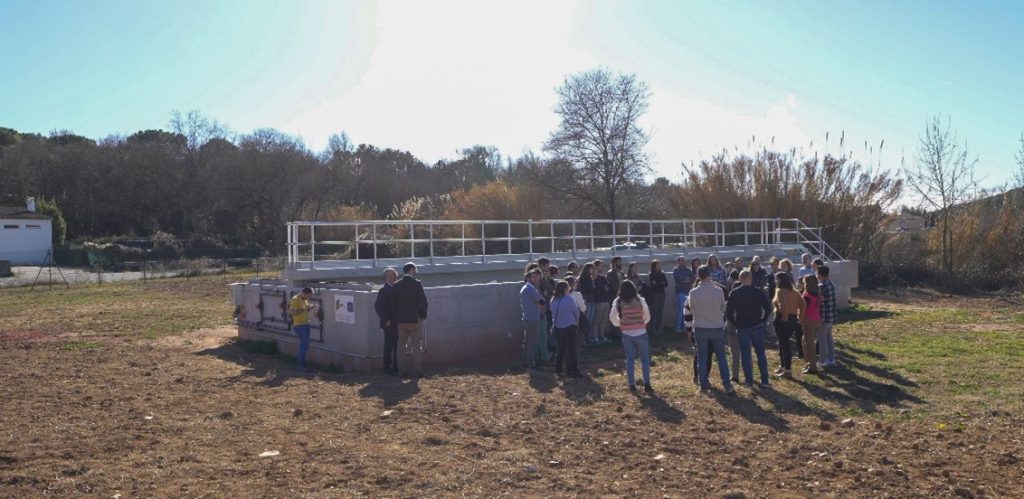
Figure 3. Final visit to the BIODAPH pilot plant installed at the Quart Wastewater Treatment Plant (EDAR) in Girona, Catalonia.
